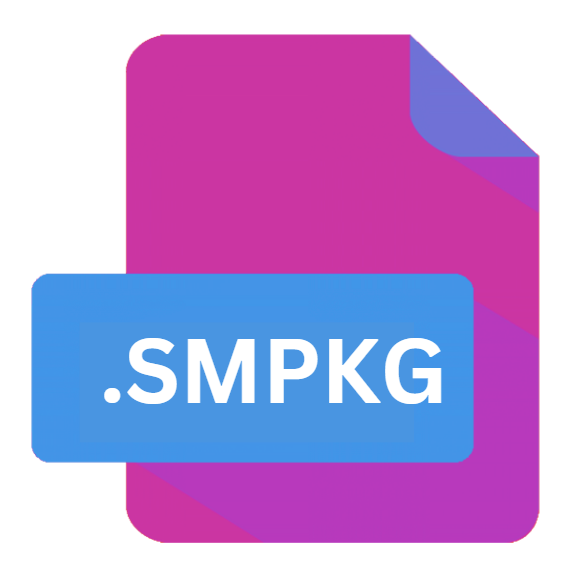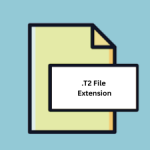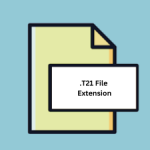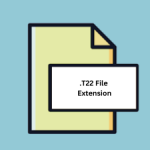.SMPKG File Extension

SmartMusic Package File
| Developer | MakeMusic |
| Popularity | |
| Category | Data Files |
| Format | .SMPKG |
| Cross Platform | Update Soon |
What is an SMPKG file?
.SMPKG files are proprietary file formats associated with SmartMusic software, a renowned platform tailored for music educators and students alike.
SmartMusic, developed by MakeMusic, Inc., serves as a digital sheet music and practice tool, revolutionizing the way musicians learn and perform.
These files encapsulate various musical elements, including sheet music, accompaniment tracks, and educational resources, all packaged neatly into a single entity.
More Information.
.SMPKG files emerged as a solution to streamline the distribution and utilization of SmartMusic content. In the early days of the software, users had to download individual files for each piece of music they wished to practice or teach.
This fragmented approach posed challenges in terms of organization and accessibility. To address this, MakeMusic introduced .SMPKG files—a container format that could hold multiple resources related to a specific musical piece or educational material.
The primary purpose of .SMPKG files were to simplify the process of accessing SmartMusic content. By consolidating various components into a single package, users could conveniently download, share, and utilize music files without the hassle of managing multiple files separately.
This not only enhanced the user experience but also promoted collaboration and resource sharing within the music education community.
Origin Of This File.
The genesis of .SMPKG files can be traced back to the evolution of SmartMusic itself. As the demand for digital solutions in music education grew, MakeMusic recognized the need for a versatile platform that could cater to the diverse needs of music learners.
Thus, SmartMusic was born, offering an innovative blend of interactive sheet music, assessment tools, and performance analytics.
File Structure Technical Specification.
.SMPKG file is a compressed archive that contains all the necessary assets for a particular musical piece or educational content.
The exact structure of an .SMPKG file may vary depending on the content it encapsulates, but typically, it includes the following components:
- Sheet Music: The primary notation for the musical piece, stored in a digital format compatible with SmartMusic’s interactive features.
- Accompaniment Tracks: Audio files corresponding to different instrumental parts or accompaniment arrangements, allowing users to practice along with the music.
- Assessment Criteria: Metadata or instructions used by SmartMusic’s assessment engine to evaluate the user’s performance and provide feedback.
- Educational Resources: Additional materials such as instructional videos, practice exercises, or background information related to the musical piece.
The technical specification of .SMPKG files are proprietary to SmartMusic and may not be publicly documented. MakeMusic provides developers and users with tools and documentation to create and interact with .SMPKG files within the SmartMusic ecosystem.
How to Convert the File?
Converting .SMPKG files to other formats can be necessary when you want to use the content outside of the SmartMusic environment.
While direct conversion tools for .SMPKG files may not be readily available due to their proprietary nature, there are still several approaches you can take to achieve this.
Extract and Convert Components: One method involves extracting the individual components of the .SMPKG file, such as audio or MIDI files, and then converting them to standard formats using third-party software or online converters. This process typically involves these steps:
- Extract Files: Use file compression software like WinRAR or 7-Zip to extract the contents of the .SMPKG file. Inside, you’ll find various files and folders containing the multimedia assets.
- Identify Relevant Files: Locate the audio, MIDI, or other relevant files within the extracted content.
- Convert Files: Use audio conversion software like Audacity or online converters to convert the extracted audio files to formats like MP3 or WAV, and MIDI files to formats like MIDI or MusicXML.
Utilize SmartMusic Export Functionality: SmartMusic itself offers export functionalities that allow you to save the content in more common formats supported by other software. While this method may retain more of the original metadata and interactivity, it still requires access to the SmartMusic software and may not be suitable for all types of content. The steps typically involve:
- Open SmartMusic: Launch the SmartMusic application on your computer.
- Access File: Open the .SMPKG file within SmartMusic.
- Export Content: Use the export functionality within SmartMusic to save the content in a more common format, such as MP3 for audio or MusicXML for notation files.
Use SmartMusic’s Import Functionality: Some other music software platforms may offer import functionality for SmartMusic files or their components. If you’re using software that supports importing from SmartMusic, you can use this feature to directly import .SMPKG files or their extracted components into the software.
Advantages And Disadvantages.
Advantages:
- Convenience: By bundling all necessary resources into a single file, .SMPKG files simplify the process of accessing and managing music content.
- Interactivity: SmartMusic’s interactive features enhance the learning experience by providing real-time feedback and performance assessment.
- Collaboration: .SMPKG files facilitate collaboration among educators and students by enabling the easy sharing of curated music collections and educational materials.
Disadvantages:
- Proprietary Format: .SMPKG files are designed to be compatible exclusively with SmartMusic software, limiting their interoperability with other platforms or applications.
- Dependency on SmartMusic: Users must have access to SmartMusic software to fully utilize .SMPKG files, which may pose challenges for individuals or institutions without subscriptions to the service.
- Content Restrictions: The availability of .SMPKG files are contingent upon the content provided by MakeMusic and its partners, which may not cover all musical genres or educational needs.
How to Open SMPKG?
Open In Windows
- Using SmartMusic: If you have SmartMusic installed on your Windows computer, simply double-click on the .SMPKG file, and it should automatically open in the SmartMusic software. Alternatively, you can open SmartMusic and use the “File” menu to import the .SMPKG file manually.
Open In Linux
- SmartMusic Compatibility: As of the latest information available, SmartMusic does not have official support for Linux operating systems. However, you may explore compatibility options such as using compatibility layers like Wine to run SmartMusic on Linux. Keep in mind that this method might not guarantee full functionality or stability.
Open In MAC
- Using SmartMusic: If you have SmartMusic installed on your Mac, the process is similar to Windows. Double-click on the .SMPKG file to open it in SmartMusic, or open SmartMusic and import the file using the “File” menu.
Open In Android
Open In IOS
Open in Others
- Mobile Devices: SmartMusic also has mobile applications available for iOS and Android devices. You can download the SmartMusic app from the respective app stores on your mobile device and open .SMPKG files within the app.
- Virtual Machines: Another option for opening .SMPKG files on unsupported operating systems is to use virtual machines. Install a supported operating system (Windows or macOS) within a virtual machine environment on your system and then install SmartMusic within that virtual machine to open .SMPKG files.













